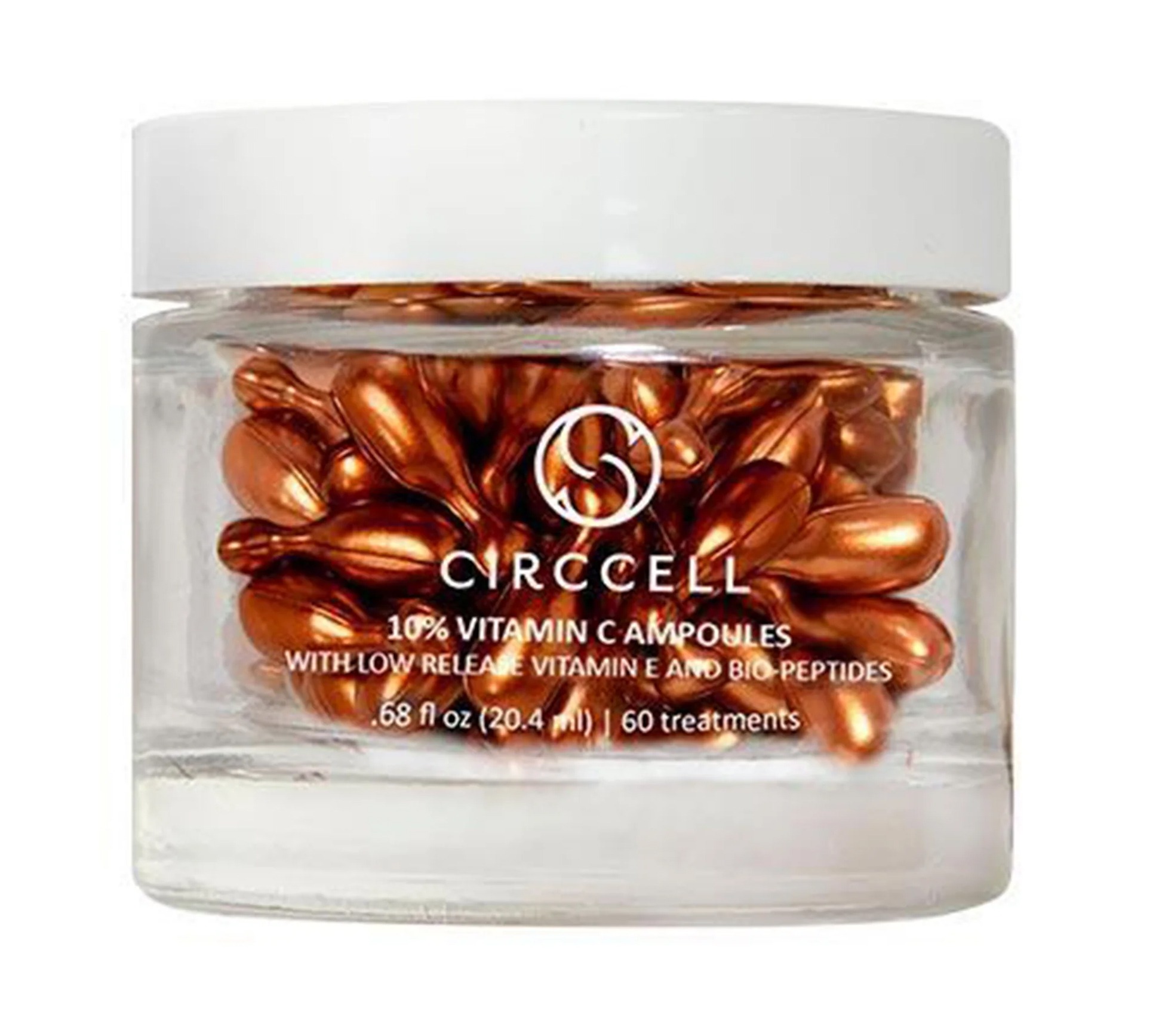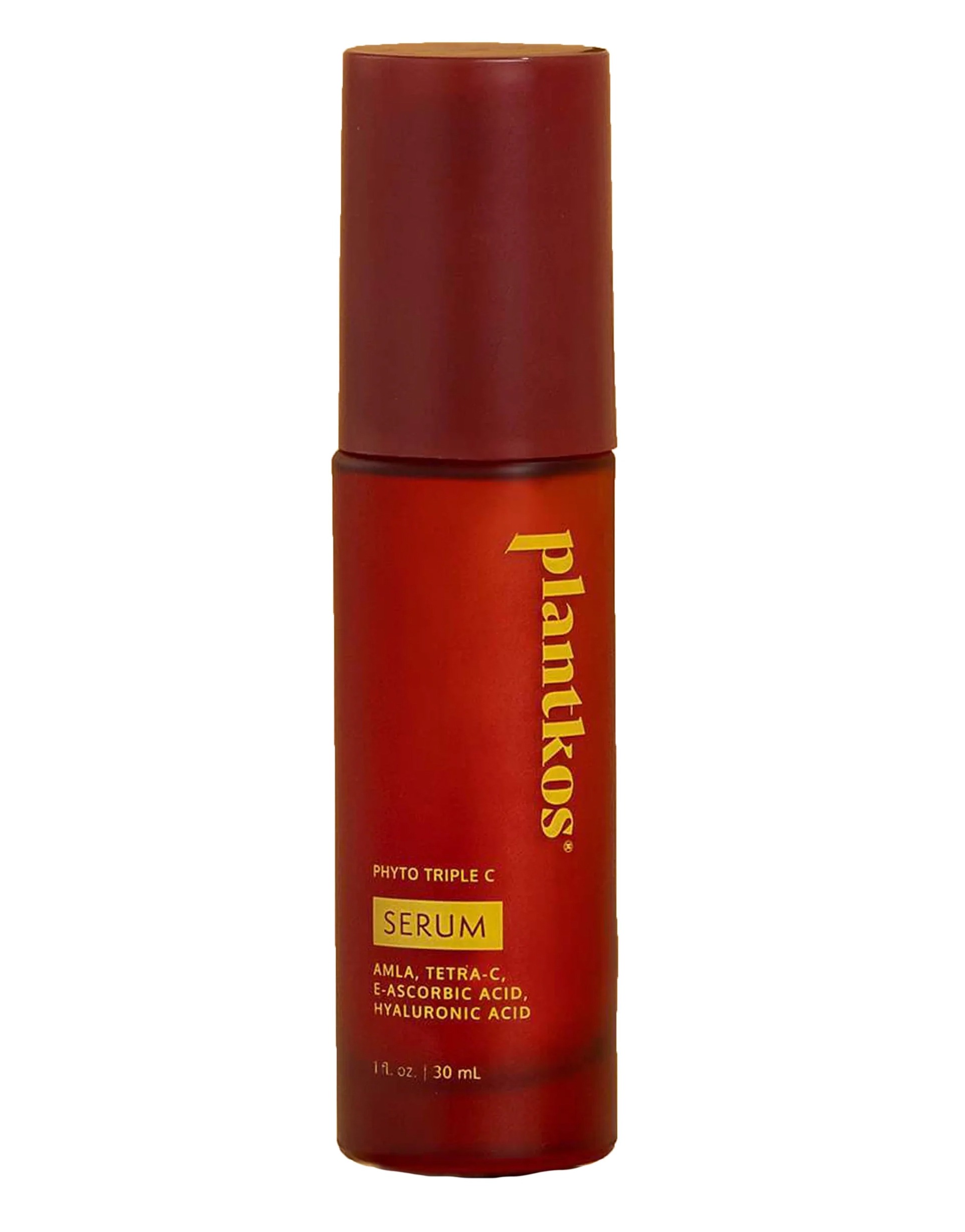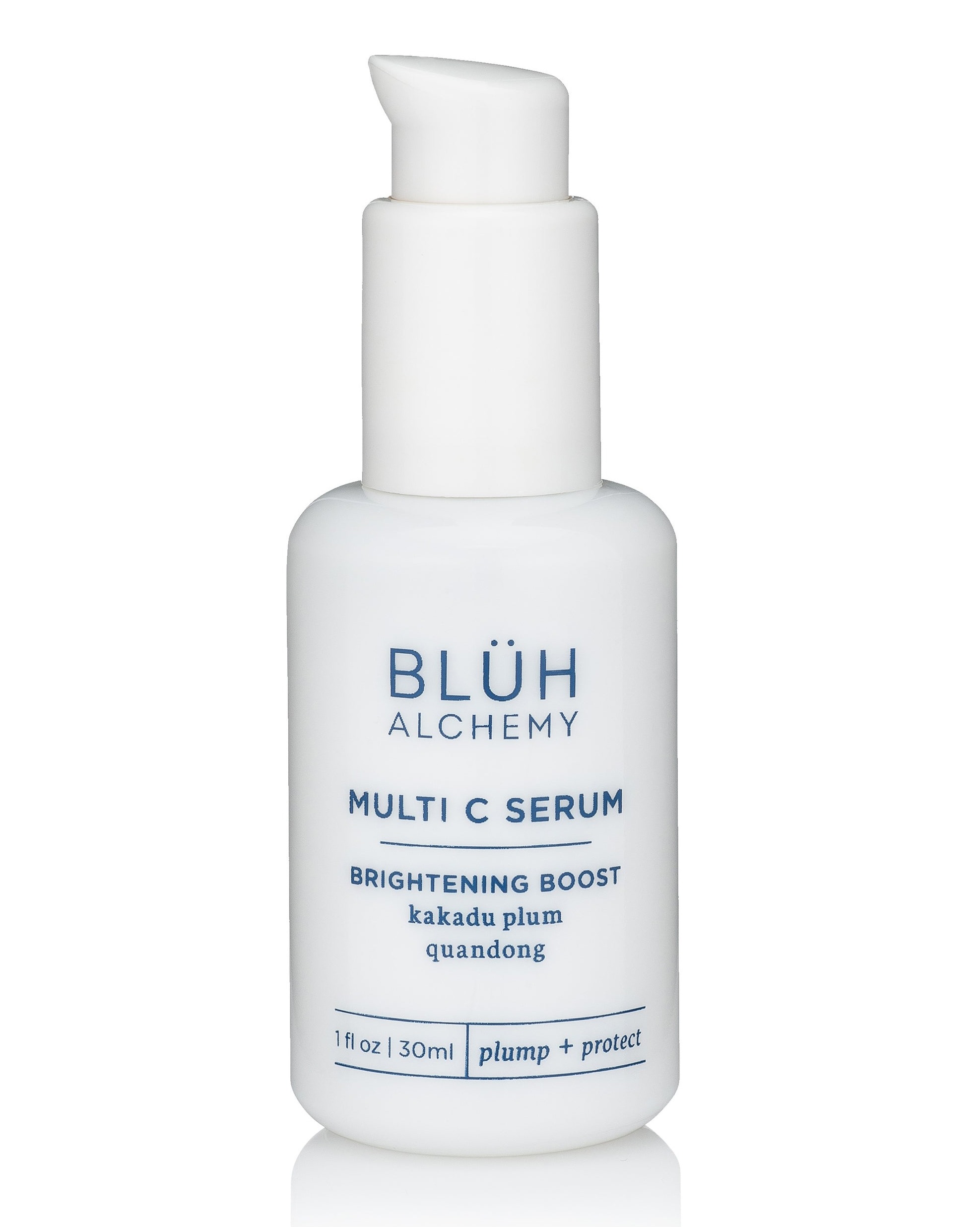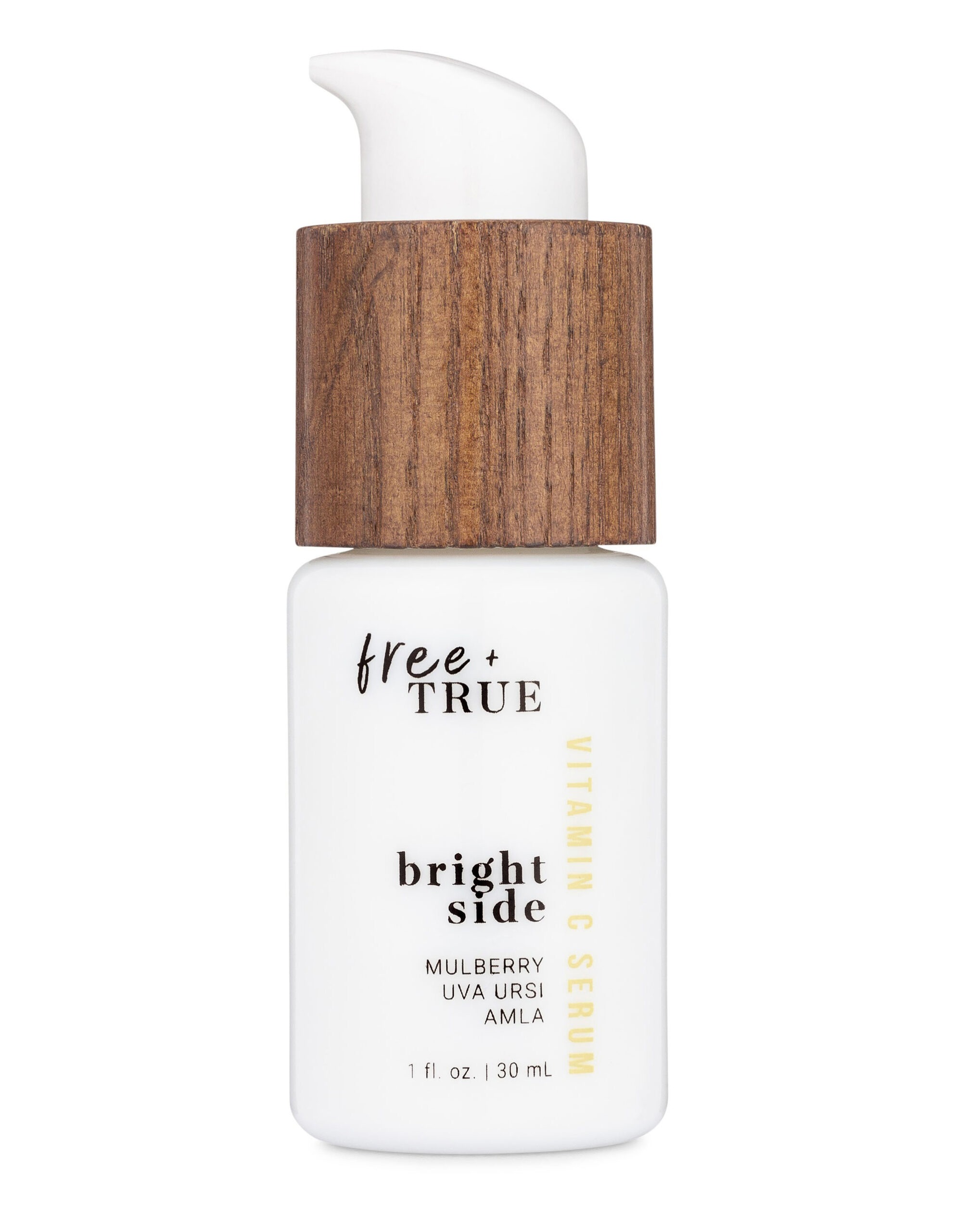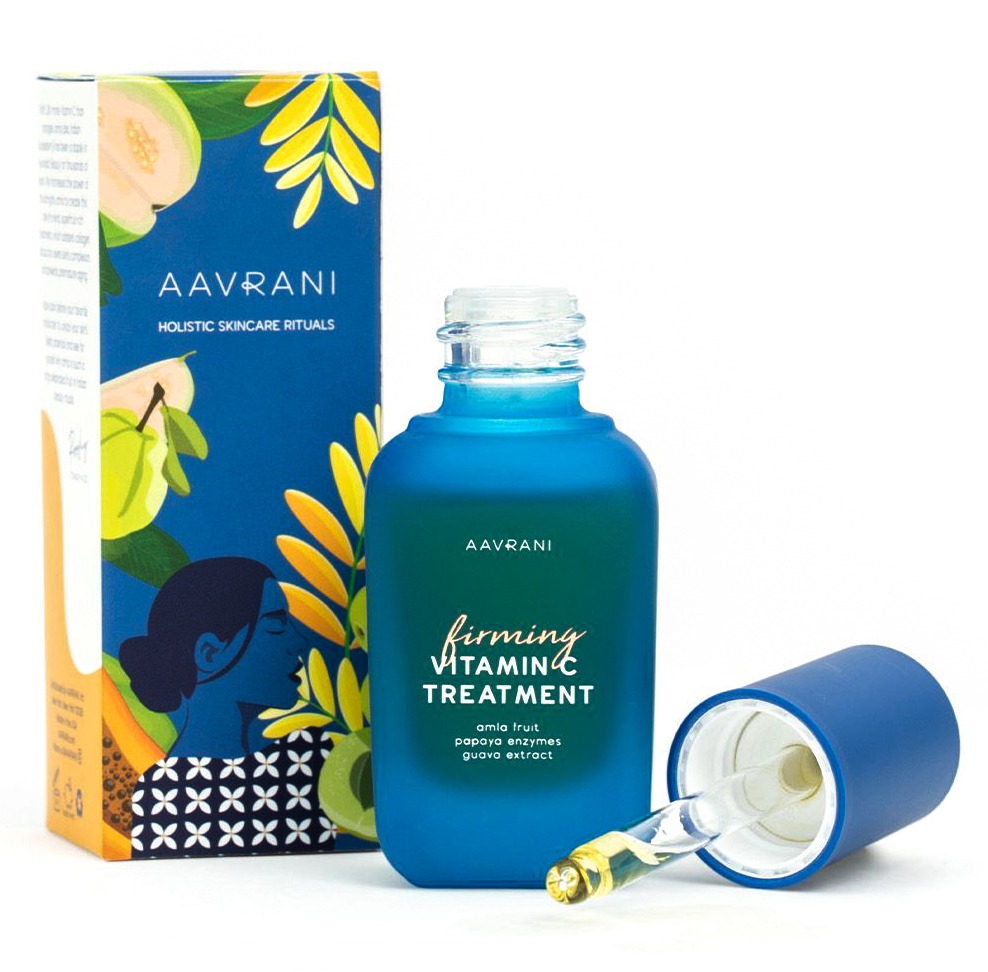Have you ever bought a product because you were enticed that it contained “Vitamin C,” only to feel completely lost when you went to look for it in the ingredients list? We have five words for you—you are not alone!
Similarly confusing, with magazines and talk shows dubbing it the miraculous, “holy grail,” simple, quick-fix solution to all of your skincare woes, and widely varying price ranges, and claims, it continues to be one of the most enigmatic ingredients on the market. That being said, we figured this was the perfect opportunity to share a little skincare secret a lot of companies don’t want you to know—not all Vitamin Cs are created equal! In fact, the good majority of companies using Vitamin C are most likely opting for the cheapest, least bioavailable varietal, all in hopes that you, the customer, will continue not knowing how to identify it in your labels.
The disconnect ends now! Here is the only guide you’ll ever need to start identifying MVP Cs like a pro!
CIRCCELL Vitamin C Ampules
Tetrahexyldecyl ascorbate
OIL SOLUBLE VITAMIN C
- Tetrahexyldecyl ascorbate (THD)
- Ascorbyl Tetraisopalmitate (ATIP)
The highest quality, most expensive, most luxurious, and most stable form—oil-soluble Vitamin C is truly the “Cadillac” of Cs. Its fatty acid complex makes it the most bioavailable, allowing the skin to absorb higher “megadoses” of it—and this is where all the magic happens! It brightens, it plumps, it restores, it protects, it nourishes—it truly does it all! Look for these names in your labels, and as high up in the list as your budget will allow. Trust us when we say that your skin will thank you for it!
Tetrahexyldecyl Ascorbate
3-O-Ethyl Ascorbic Acid
3-O-ETHYL ASCORBIC ACID
Short for “etherified,” this stable, water-and-oil-soluble derivative serves as a second runner-up as it is more potent than your average water-soluble forms. It offers all of the same, transformative benefits Vitamin C is best known for, often at a more affordable price. Though studies have yet to prove just how promising this form of Vitamin C truly can be for the skin, we still think it’s worth a shot.
BLÜH ALCHEMY Brightening Boost Multi C Serum
Tetrahexyldecyl Ascorbate
Kangaroo Paw Flower
FERULIC ACID/KANGAROO PAW FLOWER
ASCORBIC ACID (aka Anigozanthos Flavidus Extract)
When in doubt, look for Ferulic Acid! A wonderful, sometimes more affordable alternative to oil-soluble Vitamin C, when inferior forms of vitamin C are compounded with Ferulic Acid, or “Kangaroo Paw Flower,” a natural source of this acid, their capabilities are boosted to new heights! Ferulic acid stabilizes Vitamin C, thus maximizing its antioxidant content. Is it the best money can buy? Certainly not, but we’re going to give it an A for effort!
FREE + TRUE Bright Side Vitamin C Serum
Tetrahexyldecyl Ascorbate
Magnesium Ascorbyl Phosphate
ASCORBYL GLUCOSIDE
SODIUM ASCORBYL PHOSPHATE
MAGNESIUM ASCORBYL PHOSPHATE (aka MAP)
Water soluble’s finest forms, these stable precursors of vitamin C achieve a constant delivery into the skin without irritation. Though all three are not recommended for sensitive skin types, they condition, hydrate, and brighten better than your traditional, old-fashioned water-soluble vitamin C on their own.
AAVRANI Firming Vitamin C Treatment
Amla Extract
AMLA EXTRACT (aka Emblica Officials Fruit Extract)
This fruit is naturally packed full of vitamin C, making it an antioxidant powerhouse. Though a percentage of just how much of this ingredient is often not disclosed on product packaging, if you spot this one in your label, and in the first half of the list, you can rest assured your skin is in good hands!
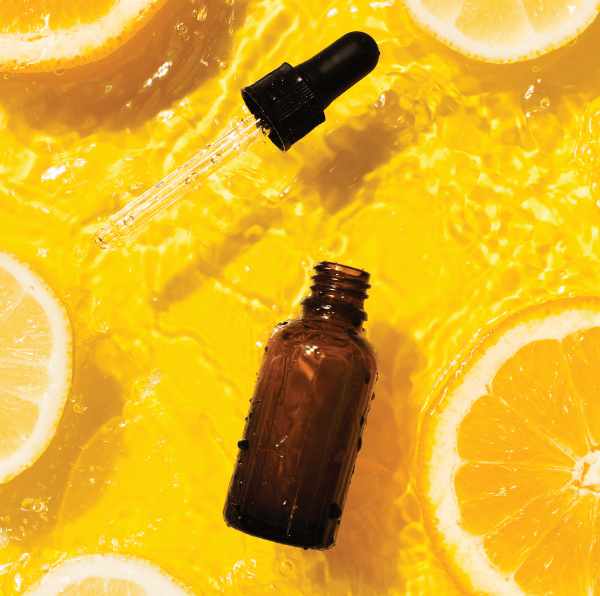
WATER-SOLUBLE VITAMIN C
- L-ascorbic Acid
- Ascorbic Acid
The purest form of Vitamin C, it also comes in as the cheapest, lowest quality, hardest to absorb, and least stable. It oxidizes quickly, which can lead to a whole host of undesirable skincare outcomes–irritation, fowl smells, changing colors, and even compromised pH levels, to name a few. Unless you see it accompanied by Ferulic Acid, or Kangaroo Paw Flower, and you can confirm you are not a sensitive skin type, we recommend leaving this one behind. Small amounts are likely safe, especially when formulated with a compatible base, but the benefits will likely be hard to find.


